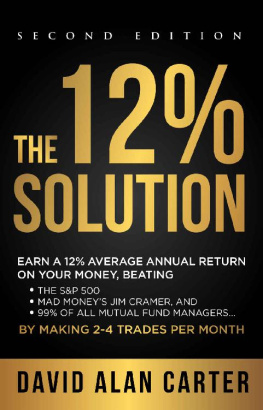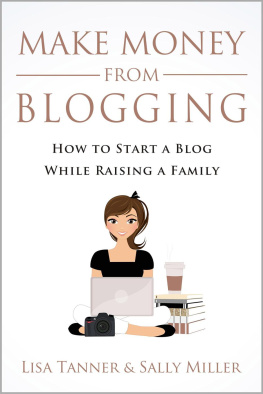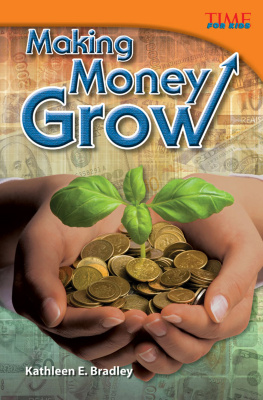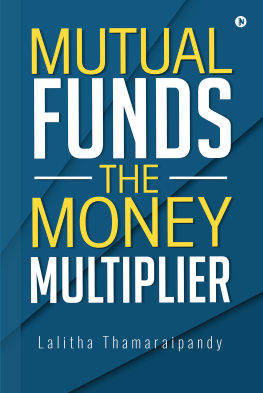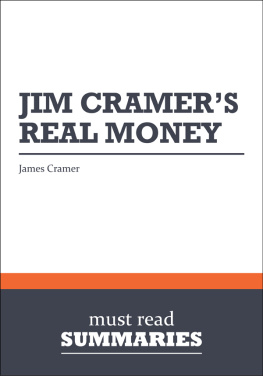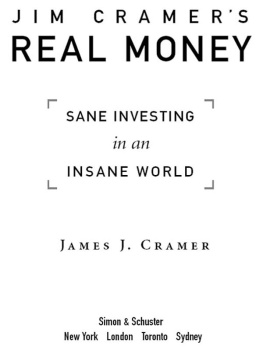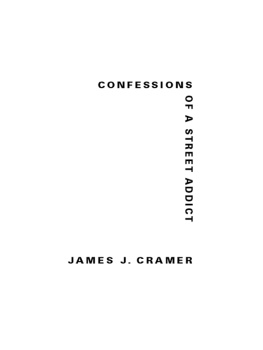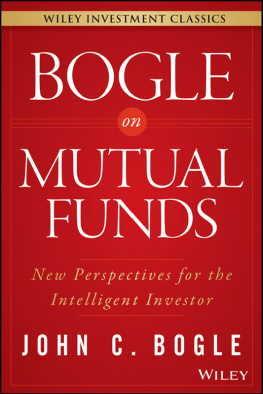The 12% Solution
Earn a 12% Average Annual Return on your Money, Beating
- The S&P 500,
- Mad Moneys Jim Cramer, and
- 99% of all Mutual Fund Managers
By Making 2-4 Trades Per Month
David Alan Carter
Copyright 2017, 2019 by David Alan Carter
Second Edition
Echo West Publishing
First Edition published 2017
Second Edition published 2019
All Rights Reserved. No part of this publication may be reproduced, distributed, or transmitted in any form or by any means, including photocopying, recording, or other electronic or mechanical methods, or by any information storage and retrieval system without the prior written permission of the publisher, except in the case of very brief quotations embodied in critical reviews and certain other noncommercial uses permitted by copyright law.
READ THE BEFORE PROCEEDING
Note: this book makes use of C O L O R in charts and tables. If viewing on devices that do not display color, consider reading on a PC, Mac, iPad or other tablet using the free Kindle App for PC or Mac.
Table of Contents
Why I Wrote This Book
Dont be like me. More specifically, dont be like the younger me.
I wrote this book because of people like me. Because this is exactly the kind of advice I wish I had been given nineteen years ago. Back then, I was brimming with confidence that I would be able to figure out this stock market thing, game the system, and power invest my way into an early retirement.
That was in 1998. And in fact, after an initial period of brutal losses, I began piling up profitable trades and my brokerage account began to grow impressively. Yes, of course, I was a genius.
Then 2000 came along, and the Dot-Com Crash. From peak to bottom, the Nasdaq Composite lost 78% of its value, exacerbated by the September 11, 2001 attacks and the collapse of energy giant Enron later that same year. I went from genius to doofus practically overnight. In the back of my mind was this thought: squirrel away a set of flatware so that I might be able to eat with some dignity out of a dumpster.
But in time, even the darkest clouds will dissipate. After what seemed like an eternity of rice and pintos, I pulled my account up by its bootstraps. Onward!
Then it was the collapse of the Chinese stock bubble of 2007. Then the financial crisis of 2007-2009 (the Great Recession). The European sovereign debt crisis of 2010. The Flash Crash of the same year. The market selloff of 2015-2016.
Each time I eventually recovered. And each time I listened to more gurus, watched more CNBC, experimented with more bizarre technical charting patterns and developed new and improved investment strategies.
And when it was all said and done? After 18 years of countless hours of toil and trades, stress and sleepless nights, I was only marginally ahead. It was a rare year that I beat the popular benchmark, the S&P 500. More often, I lagged behind that benchmark sometimes far behind.
In 2016, while researching yet another foolproof trading strategy, I stumbled across an obscure article on the subject of sector rotation. It got me thinking. And the more I thought, the more a strategy began to crystallize.
I wrote this book because of people like me. Because this is exactly the kind of advice I wish I had been given nineteen years ago.
Who Should Read This Book
First off, let me state that this book will not appeal to every investor. Nor should it. There will be those investors who have either stumbled upon or have carefully researched a fund or combination of funds that have produced a satisfactory level of returns. To those individuals, my hats off to you and I wish you the best of luck.
Others might be active traders who have mastered a system by which they win more often than they lose, who enjoy what theyre doing, and are building a career for themselves managing a fast-growing portfolio. To those, Godspeed.
Finally, there are investors who dont wish to deal with the tax implications of trading monthly; for some, especially high-net-worth individuals, a buy-and-hold strategy assuring only long-term capital gains at tax time is preferable to beating the S&P 500 by a few points. (Tip: Implement the strategy in a tax-deferred or tax-exempt retirement account to delay or circumvent this tax issue altogether.)
So who is this book for? Pretty much everybody else.
- Its for those just starting out in stock market investing and overwhelmed with the choices.
- Its for those who have spent years moving in and out of individual stocks or funds, chasing returns or following the advice of money managers and market gurus, only to be disappointed at the end of every year.
- Its for those who have money on the line in such risky bets that they cant sleep at night.
- Its for those who want to be invested, but live in fear of bursting bubbles or the next Great Recession when the U.S. stock market lost 57% of its value.
- Its for those with traditional brokerage accounts who are willing to sacrifice a larger tax bite in exchange for up to 4.4% annually on average in additional investment returns.
- Its for those investors trading in IRAs for which tax issues are a non-issue.
- Its for anybody who isnt currently generating an average annual return of 12% on their investments, and wants to be. And wants some modicum of assurance that they wont get wiped out in the process.
In clear, precise terms, I lay out a blueprint for achieving annual returns that, over the past 10 years, have outperformed the S&P 500, the gold-standard benchmark for U.S. stock market performance. And while the most often repeated of investment advice past performance is no guarantee of future results remains valid, the reader can judge for himself as to the logic behind the strategy, and the likelihood of outperformance going forward.
To those new at stock market investing, becoming actively involved in the planning and management of your portfolio may be frightening. The actions of the market can seem convoluted and incoherent; a car clipping along a mountain road at an unsafe speed on two wheels. I understand completely, and want you to know that I developed the strategy with two primary concerns:
1) Simplicity
2) Safety
I wanted anybody and everybody to be able to follow this plan easily and with simple tools that are readily available at no charge; no need to lash yourself to onerous software or be a mathematics genius. And I wanted guardrails firmly in place along the road.
Thats not to say Ive eliminated the risk associated with stock market investing. Thats simply not possible, and those who require an absolutely risk-free investing environment need to look elsewhere. But reducing risk in the form of volatility and drawdowns (peak-to-trough declines) has been a priority.
Although many, if not most, readers will be new to the stock market, I dont intend this book to be an intro into stock market investing. For the basics regarding selecting a brokerage firm, setting up a trading account, and executing trades, there are warehouses of books and the Internet at your disposal.
For those new to investing as well as those experienced to the point of frustration, I welcome you and congratulate you on taking this first step. Together, lets uncover a simple and logical approach to investing that automates decision making, commands a mere 20 minutes of your time per month, and helps you sleep like a baby during the most turbulent of markets.
Its been hiding in plain sight for years. Youre going to kick yourself when you see how easy this is.
Welcome to The 12% Solution .
Chapter 1 - The Buffett Bet
When Warren Buffett speaks, people listen. Or do they?
Buffett is an American business magnate, investor, and philanthropist. Hes also considered by many to be one of the most successful investors in the world. According to Wikipedia , as of July 2019 Buffett is the third wealthiest person on the planet with a total net worth of $82 billion.
Next page
